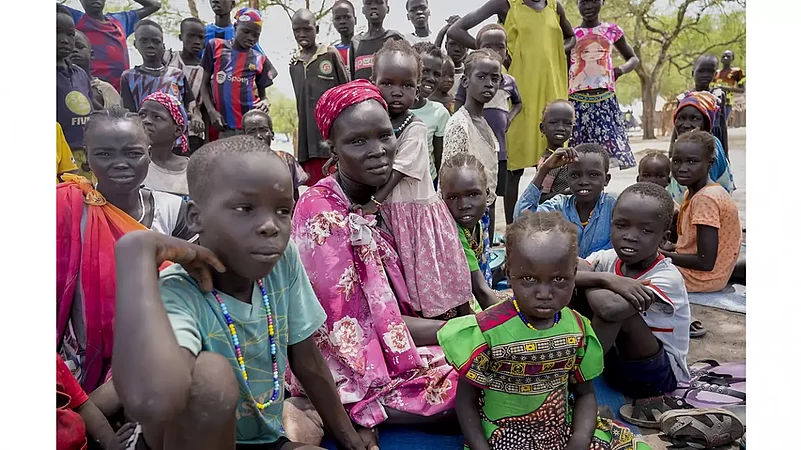In the heart of Sudan's harrowing conflict, a grim scene of despair unfolds as morgues in Khartoum's capital city find themselves unable to bear the weight of the tragedy," reveals an exclusive report by CNN. The news agency unveils the chilling truth of thousands of unattended bodies left to decay on the streets due to overflowing mortuaries. The situation has reached a dire state, with international aid group Save The Children expressing grave concerns. "Khartoum's morgues have crossed a threshold of capacity, reaching a breaking point," the aid organization states, as reported by ANI.?
Cholera Outbreak Looms As Sudan's Morgues Overflow And Medical Services Collapse
The conflict's origins trace back to mid-April when clashes erupted between the Sudanese Armed Forces (SAF) and the paramilitary Rapid Support Forces (RSF), both vying for control of the capital city.

This catastrophe, born from the ferocious four-month-long warfare in Sudan, paints a picture of devastation that extends beyond just the physical loss of life. Prolonged power outages, a result of the conflict, have left the morgues without refrigeration, hastening the decomposition process. Shockingly, the absence of medical personnel means that the corpses lie exposed and untreated, further compounding the horror of the situation.
The conflict's origins trace back to mid-April when clashes erupted between the Sudanese Armed Forces (SAF) and the paramilitary Rapid Support Forces (RSF), both vying for control of the capital city. The UN's Office for the Coordination of Humanitarian Affairs (OCHA) grimly reveals that the violence has already claimed over 1,100 lives and injured more than 12,000 people as of July 11. These official numbers, however, are believed to be a mere fraction of the actual toll. UNICEF disturbingly reports that at least 435 children have been killed and over 2,000 injured, translating to a chilling statistic: a child suffering harm or death every hour.
The horrors extend beyond death as well. Save The Children underscores the looming risk of a cholera outbreak due to a nightmarish convergence of factors: mounting corpses, water shortages, inadequate hygiene and sanitation services, and the absence of water treatment options. Cholera, a disease that thrives in war-torn environments and contaminated water, poses a grave threat to the already battered population. The current absence of functioning health facilities and public health labs exacerbates the crisis, making it difficult to gauge the true extent of the danger.
The conflict shows no signs of relenting, with both warring parties claiming victories and inflicting heavy damage on each other. The plight of civilians is further aggravated as reports emerge of intensified fighting in Omdurman, a city north of Khartoum. Amidst this turmoil, Sudan's capital lies in ruins, and over 4 million people have been forced to flee the violence across the country. The scale of suffering becomes even more alarming as the International Organization for Migration reveals that more than half of these displaced individuals are from the capital alone.
The ripple effects of this conflict have led to a humanitarian catastrophe on an unprecedented scale. More than 20 million people, accounting for over 42% of Sudan's population, grapple with acute food insecurity, according to the Integrated Food Security Classification. This staggering figure is a stark reminder of the toll exacted by this power struggle between military ruler Abdel Fattah al-Burhan and General Mohamed Hamdan Dagalo, also known as Hemedti. The conflict's devastating impact extends beyond the immediate loss of life to encompass a deepening crisis of human survival.
- Previous Story
 Marburg Virus Outbreak In Rwanda Leaves 11 Dead | All About The Deadly Ebola-Like Virus
Marburg Virus Outbreak In Rwanda Leaves 11 Dead | All About The Deadly Ebola-Like Virus - Next Story
























